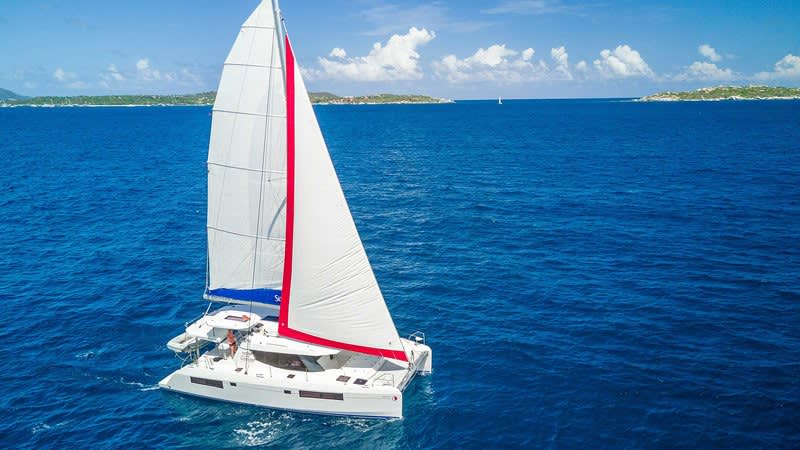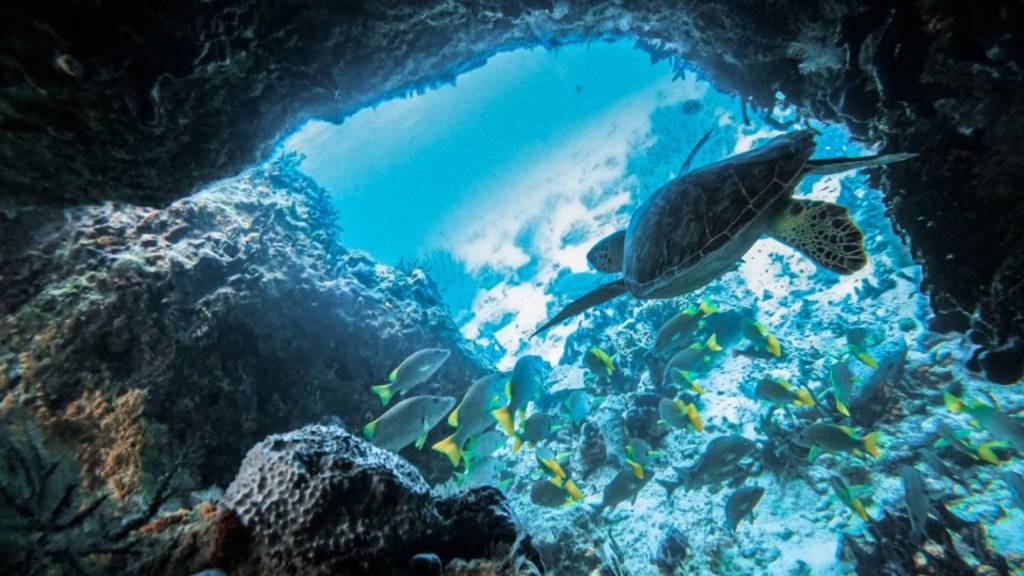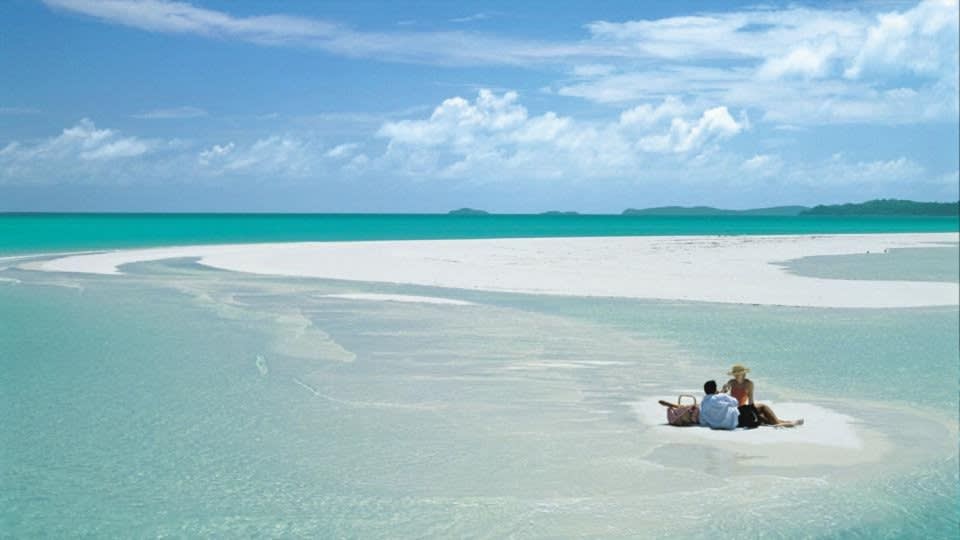As passionate sailors, we want to look after the beautiful destinations that our customers visit. Being conscious of the impact we can have on local communities; the ocean and wildlife is key to ensuring we protect them for future generations to enjoy.
While you are out on the water, there are things you can do to minimise your footprint, that collectively makes a big difference.
Our top tips
- Sails up, sail green! Minimise the motor
- Anchor with care, and use a mooring ball where possible
- Give sea life space, and do not attempt to touch marine life
- Take only pictures
- Leave only footprints
- Throw nothing overboard
- Turn electricity off when possible
- Use air-conditioning only when needed
- Recycle and reuse
- Bring refillable water bottles
- Say no to plastic bags
- Bring a reusable bag
- Minimise your plastic
- Collect litter when possible
- Buy local, and opt for ‘unbagged’ produce
- Use eco-friendly and fair-trade products
- Use facilities on land
- Shower quickly and ashore where possible
- Empty your tanks far from land
- Leave hair dryers at home
Sails up, and minimise the motor
Sail wherever possible! This will reduce your overall fuel consumption and save you money! It’s also better for the environment, meaning you will omit less carbon, reducing your carbon footprint and making less underwater noise. This means you are likely to come across more wildlife!
Enjoy water sports such as kayaks and stand-up paddle boards, and avoid noisy equipment like jet skis.

Anchor with care
It will always be best to opt for a mooring buoy; however, if you do need to anchor, ensure you do this with care. Choosing anchoring sites carefully is crucial to ensure you avoid coral reefs and seagrass. Seagrass is essentially an underwater forest where sea life thrives. It’s not safe to anchor here as it won’t provide you with a good hold, plus you’ll be damaging precious habitat. Check the seabed properly before dropping your anchor, looking for patches of mud and sand. This will provide a better hold and minimise the environmental impact.

Give sea life space
We all love to see marine life while on charter, but remember that they are wild animals. Stay at least 50 metres away from dolphins and 100 metres from whales. Ensure you maintain your course, and if animals’ approach, reduce your speed by putting your engine in neutral and enjoy the experience. Refrain from feeding or swimming with animals, and if you see any change in the animal’s behaviour, please act cautiously. When snorkelling and exploring the underwater world, be sure to enjoy corals, shells, and marine life without touching them and from a distance.

Take only pictures
Leave sea life in its natural habitat so everyone can enjoy it. Do not disturb, and remember that sea creatures are more scared of us than we are of them. Snorkel and dive with respect, minimising the sound you make, and be careful not to damage any fragile or sensitive corals. Beware of jellyfish and sea urchins. Refrain from purchasing rare souvenirs, including corals, rare shells, tortoise shell hair ornaments, turtle shells, shark teeth, and souvenirs made from whale products.
Leave only footprints
Respect wildlife on the beach. Leave the beaches and bays you visit as clean as you would like to find them by taking any waste with you. Remember, the oceans and beaches we visit are delicate ecosystems, and we must protect biodiversity.

Throw nothing overboard
Help us keep our oceans clean. Non-organic materials can be toxic and take hundreds of years to decompose, including food that is thrown overboard; this can be found washed up on beaches. Food also creates nourishment and enrichment, which provokes algal blooms, leading to smelly water. While food degrades in water, it consumes valuable oxygen, taking this away from sea life.

Turn electricity off
Reduce your carbon footprint and only use electricity when you need to. Avoid running the engine or generator unnecessarily and leaving lights or the air conditioning on when you aren’t onboard.
Use air-conditioning only when needed
Only put air-conditioning on when you are using it, as having it on uses energy. Keep the doors to your cabins closed, as this will ensure they remain cool. If you have the air conditioning on in the main saloon, keep the doors and windows closed as it’ll reduce the temperature quicker and the yacht will remain cooler for longer.
Recycle and reuse
Squash plastic bottles and cartons to minimise the space your waste takes up on board your boat. Recycle as much as possible and reuse.
Bring refillable water bottles
Filtered water is available across all our bases, and on all our yachts that are under 3 years old, you will find a water purifier. Rather than buying plastic bottles, bring your own reusable bottle and refill! This will save you money and minimise your waste.

Say no to plastic bags
Wherever possible, say no to plastic bags. If you do end up with one, try to reuse it for the duration of your charter.
Bring a reusable bag
Say no to plastic bags and bring a reusable shopping bag from home. Some of our bases even provide these onboard our yachts, so be sure to take them with you to the shops.
Minimise your plastic
Every year, around 9 million tonnes of plastic waste end up in the ocean! Say no to plastic wherever possible. Buy vegetables loose and decline plastic cups and straws. This will reduce the amount of single-use plastic you’ll use while on charter.

Collect litter when possible
We can all continue to enjoy the beautiful beaches and bays in your destination when you collect any litter you see. Plus, if anything floats past you when you are out on the water, please collect it if it is safe to do so. This will also help to protect sea life.
Buy local
Avoid the larger supermarkets where possible and shop at local markets. This will help boost the local economy and support communities, keeping people employed. Shopping for seasonal and local produce is always tastier, and fewer pesticides are used to grow it. The majority of fish populations are overfished; therefore, consume fish that has been caught locally only and avoid fish species that are endangered, including swordfish, angler fish (monkfish), red mullet, hake, and bluefin tuna.
Use eco-friendly, reef-safe, fair trade, and cruelty-free products as much as possible. This will ensure that when you empty your tanks, you aren’t also releasing toxins into the ocean. Reduce the amount of soap used when washing up and showering. Purchasing fair trade products will mean that the producers are treated fairly and paid a fair wage. Protecting yourself and your skin is incredibly important, but thousands of tonnes of sunscreen that contain chemicals that attack coral reefs end up in the ocean every year. Ensure you use the right sunscreen, wear appropriate swimwear, and enjoy the shade!

Use facilities on land
Conserve the water in your tanks for when you don’t have access to facilities ashore. This will minimise the amount of waste in your tanks that needs to be released into the ocean.

Shower quickly and ashore where possible
Minimise the amount of water you are using onboard, and remember that all water used will be released into the ocean, so ensure you consider the type of products you are using in the shower.
Empty tanks far from land
Do not open holding tanks in harbours, bays, or too close to shore. When emptying tanks, do so at speed and at least three miles from shore. Be sure not to put anything you haven’t eaten down the toilet, utilising the bins provided for all toilet tissue and sanitary products. If released into the ocean, these can be harmful to wildlife and can block the pipelines on your yacht.
Leave hair dryers at home
Let the sunshine dry your hair and give it a break from artificial heat! This will also conserve electricity and minimise your fuel consumption, as you’ll reduce the time your engine needs to be running.
Enjoy your time on the water and help ensure our seas, beaches, and beautiful destinations can be enjoyed for generations to come.
Step Aboard Here
Start your experience with Sunsail on land and sign up to receive e-mails from us about yachts, offers and destinations.
By clicking 'Sign up' you confirm that you have read and understood our Privacy Policy and consent to our use of your information.
